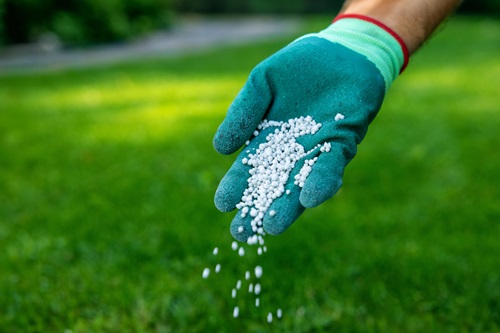
Keeping your lawn looking beautiful and healthy takes the right kind of care, especially when it comes to fertilizing. Effective fertilizers not only provide the nutrients your grass needs but also improve the soil’s overall health. Let’s dive into how you can choose and use the best fertilizers for a vibrant, green lawn.
Fertilizing Your Lawn Properly
When picking a fertilizer, think about what your specific lawn needs. Different types of grass have unique nutrient requirements. For example, Bermuda grass might need a different blend than Kentucky bluegrass.
Additionally, consider your soil type. Sandy soils drain quickly and might need more frequent feeding, while clay soils hold onto nutrients longer, benefiting more from slow-release fertilizers.
It’s also essential to encourage slow and steady growth. Rapid growth can lead to weak roots, making your lawn more prone to diseases and drought. Opt for fertilizers that release nutrients gradually.
The Importance of Soil Testing
Before you start fertilizing in Columbia SC, it’s crucial to test your soil. Soil tests give you valuable information about nutrient deficiencies and the composition of your soil, including levels of nitrogen, phosphorus, and potassium. Knowing these details helps you choose the right fertilizer to address any deficiencies and promote healthier plant growth.
Soil tests also reveal the soil’s pH level, which affects how well plants can absorb nutrients. By understanding your soil’s pH, you can select a fertilizer that suits your lawn’s needs, preventing nutrient imbalances and ensuring efficient nutrient uptake.
Understanding Nutrient Levels in the Soil
When it comes to proper residential lawn care in Columbia SC, it’s important to understand the nutrient levels in your soil. Key nutrients like nitrogen, phosphorus, and potassium play crucial roles in plant growth. For instance, nitrogen supports photosynthesis and growth, phosphorus helps develop roots, and potassium boosts disease resistance.
By identifying nutrient deficiencies through soil testing, you can apply the right fertilizers or soil amendments. This targeted approach ensures your lawn gets the nutrients it needs, preventing problems like stunted growth or discoloration.

Fertilizing in Conway SC
Fertilizing According To Grass Types
Different types of grass have specific nutrient needs, so matching the right fertilizer to your grass type is essential for optimal growth.
- Bermuda Grass: This type of grass thrives with high-nitrogen fertilizers to support vigorous growth.
- Kentucky Bluegrass: It benefits from fertilizers with higher phosphorus and potassium levels to develop strong roots.
- Zoysia Grass: This grass type requires balanced, slow-release fertilizers to maintain its dense growth.
- St. Augustine Grass: Prefers fertilizers rich in phosphorus to ensure healthy root development.
Providing the right nutrients in the correct proportions helps your lawn grow healthily and look its best.
Pros and Cons of Organic Fertilizers
Organic fertilizers have several advantages. They enrich the soil with essential nutrients and promote healthy plant growth. Additionally, they improve soil structure and water retention, reducing the need for frequent watering. Organic fertilizers also support beneficial microorganisms, enhancing long-term soil fertility.
However, they release nutrients slowly, which might not meet immediate plant needs. Plus, if not properly composted, they can contain weed seeds, leading to potential weed infestations.
Benefits of Synthetic Fertilizers
Synthetic fertilizers offer quick results because they release nutrients rapidly. They are formulated to deliver precise nutrient ratios, ensuring balanced growth without nutrient imbalances. Their ease of application and longer shelf life make them convenient for homeowners looking for immediate lawn improvement.
Despite these benefits, overapplication can lead to nutrient runoff, impacting the environment. It’s crucial to use them responsibly and follow the recommended application rates.
Fertilizing At The Right Time
Timing is key when it comes to fertilizing your lawn. Slow-release fertilizers are typically applied in spring and early autumn to provide a steady nutrient supply. On the other hand, quick-release fertilizers are best used during the growing season for an immediate boost.
Soil type and weather conditions also affect timing. For instance, sandy soils may need more frequent applications, while clay soils might require less. Always consider temperature, rainfall, and sunlight to adjust your fertilization schedule for the best results.
Achieving a lush and healthy lawn involves understanding its specific needs and applying the right fertilizers at the right time. For expert advice about fertilizing, reach out to Conway Lawn Care Service today. Let’s work together to achieve the vibrant, thriving lawn you’ve always wanted!
Like our Facebook page for more great info about heating and cooling services.
No comments:
Post a Comment